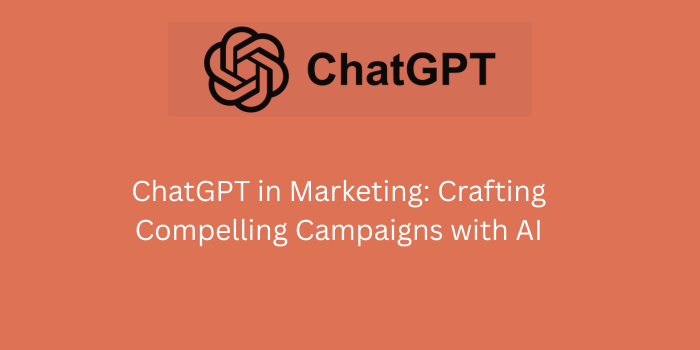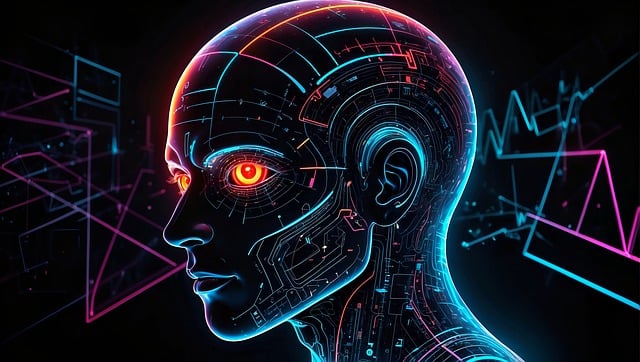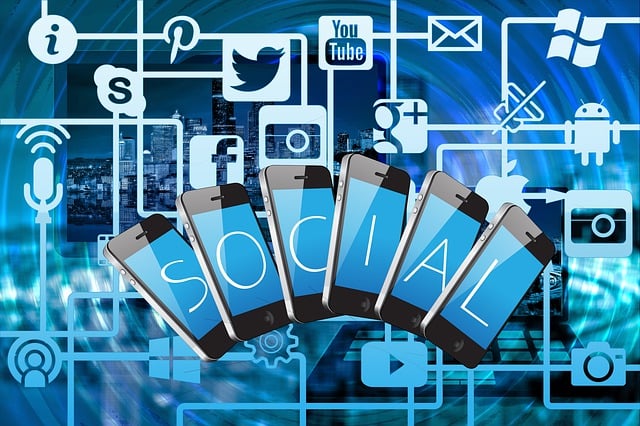Marketing is evolving at lightning speed, and one of the most transformative technologies driving this change is artificial intelligence. Among the most powerful tools in this space is ChatGPT—a conversational AI developed by OpenAI. In this blog post, we’ll explore how marketers are using ChatGPT to create compelling campaigns, automate content, improve targeting, and boost ROI.
What is ChatGPT?
ChatGPT is a language model developed by OpenAI that generates human-like text based on the input it receives. It can carry out a wide variety of tasks such as answering questions, writing content, generating ideas, and even holding conversations. When applied to digital marketing, ChatGPT can assist in everything from ad copywriting to customer support automation.
Why Use ChatGPT in Marketing?
Marketing teams are constantly looking for ways to do more with less—faster, smarter, and more effectively. ChatGPT offers a unique blend of efficiency and creativity, enabling marketers to streamline repetitive tasks while generating fresh, engaging content. Here are some of the key reasons why ChatGPT has become an essential tool in modern marketing strategies:
- Speed: Generate high-quality content in seconds.
- Scalability: Handle content creation across multiple channels.
- Cost-Efficiency: Reduce the need for large content teams.
- 24/7 Availability: Ideal for customer service and lead generation bots.
- Data-Driven Personalization: Deliver tailored messages at scale.
How ChatGPT Is Used in Marketing Campaigns
ChatGPT has emerged as a versatile asset in the marketer’s toolkit, offering support across multiple stages of a campaign—from ideation to execution. By automating content creation and providing data-driven insights, it empowers marketers to run more agile and impactful campaigns. Below are some of the key ways ChatGPT is applied throughout modern marketing workflows:
1. Content Creation
ChatGPT is revolutionizing content creation in marketing by enabling businesses to produce high-quality, engaging copy at scale with minimal human input. Whether you need full-length blog posts, compelling social media captions, attention-grabbing email newsletters, persuasive landing page content, or high-converting ad copy, ChatGPT can generate it quickly and efficiently.
Marketers can tailor the output by fine-tuning prompts to match the desired tone, messaging, and brand style, ensuring that all content aligns seamlessly with their brand voice. This makes it an ideal tool for maintaining consistency across different marketing channels while saving time and resources. With built-in capabilities for AI content creation and SEO optimization, ChatGPT helps digital marketers target specific audiences and keywords more effectively.
As a result, businesses can enhance user engagement, increase conversion rates, and improve their overall marketing performance. By integrating ChatGPT into their workflow, marketers gain a powerful edge in today’s fast-paced, content-driven digital marketing landscape.
2. Email Marketing Automation
Email marketing remains one of the most powerful tools for reaching and nurturing leads, and using AI for campaign creation is transforming how businesses approach it. ChatGPT plays a pivotal role in automating and enhancing email marketing efforts by generating segmented and personalized email content tailored to specific customer personas. With ChatGPT for email automation, marketers can craft compelling subject lines, personalized introductions, and engaging body copy that speaks directly to the recipient’s interests and behavior.
It can also help create entire email sequences, including welcome emails, product announcements, event promotions, and re-engagement campaigns. AI in email marketing not only saves time but also ensures consistent messaging and higher engagement rates. By analyzing previous interactions and customer data, ChatGPT can help optimize content for better open rates and conversion rates.
This level of personalization at scale makes ChatGPT an indispensable tool for marketers aiming to drive results through intelligent, data-driven email campaigns.
3. Social Media Marketing
Social media marketing can be incredibly time-consuming, especially when managing multiple platforms and accounts. By integrating ChatGPT for social media, marketers can save hours every week by automating the creation of engaging posts, captions, and targeted hashtags. This powerful AI marketing tool generates content that resonates with your audience’s tone, preferences, and behavior.
Whether you’re running campaigns on Instagram, Facebook, LinkedIn, or Twitter, ChatGPT helps maintain a consistent brand voice while scaling your outreach. You can also use it to simulate audience interaction by generating potential replies, responses to comments, or even creative retweets—making your content strategy more interactive.
With AI in social media marketing, you can quickly test different content angles, perform A/B testing, and monitor engagement metrics to refine your approach. This level of automated content creation not only boosts productivity but also enhances the quality and relevance of your social media campaigns.
4. SEO-Optimized Blogging
Marketers use ChatGPT to generate SEO-friendly blog content that targets relevant keywords and drives organic traffic. As part of a broader content marketing strategy, ChatGPT can assist with outlining, drafting, and refining blog posts that are optimized not just for search engines, but also for user intent.
By leveraging AI content creation, marketers can produce long-form content quickly and efficiently, saving valuable time while maintaining quality and consistency. ChatGPT can identify keyword opportunities, structure articles for readability, and even suggest meta titles, descriptions, and subheadings that improve on-page SEO. Additionally, it can tailor content to rank for featured snippets and adapt tone and formatting for voice search optimization—an increasingly important aspect of modern SEO.
Whether you’re targeting broad search terms or niche long-tail keywords, ChatGPT serves as a powerful SEO tool that enhances the effectiveness of your blog strategy and strengthens your overall presence in digital marketing.
5. Product Descriptions and E-Commerce Copy
From detailed product listings to optimized category pages, ChatGPT helps e-commerce brands deliver consistent, compelling, and high-converting content across thousands of SKUs.
By leveraging AI content creation, businesses can save valuable time while ensuring their product descriptions are engaging, SEO-friendly, and aligned with customer search intent. ChatGPT for e-commerce enables scalable content production, allowing online stores to update or launch new products quickly without compromising on quality.
Whether you’re writing technical specifications, highlighting key features, or crafting persuasive CTAs, ChatGPT’s ability to generate automated product descriptions makes it an essential tool for driving traffic and boosting conversions in competitive markets.
6. Chatbots and Customer Service
AI-driven chatbots powered by ChatGPT are revolutionizing customer service by providing 24/7 support with speed, consistency, and accuracy. These intelligent virtual assistants can handle a wide range of tasks including answering frequently asked questions, guiding users through product selections, managing order inquiries, and collecting valuable customer data for lead generation.
By using natural language processing and machine learning, ChatGPT chatbots deliver human-like conversations that enhance customer satisfaction and reduce operational costs. Ideal for e-commerce, SaaS, and service-based industries, these AI chatbots are transforming digital marketing strategies and customer engagement in today’s fast-paced, always-on business environment.
Personalization at Scale with AI
One of the major advantages of ChatGPT in digital marketing is its ability to deliver personalized content at scale. Using customer data and behavioral insights, marketers can create dynamic content that resonates with specific audience segments.
Examples include:
- Personalized product recommendations
- Dynamic subject lines and CTAs
- Tailored blog content for different buyer personas
Using ChatGPT for Marketing Strategy and Planning
ChatGPT can go beyond content generation. It can help you brainstorm campaign ideas, conduct competitive research, analyze audience feedback, and even outline your entire marketing funnel.
Example Use Cases:
- Brainstorm campaign themes for product launches
- Generate A/B test ideas for ads and landing pages
- Suggest improvements for customer onboarding sequences
Case Studies: Real Brands Using ChatGPT
Many businesses have already adopted ChatGPT for their marketing needs. Here are a few real-world examples:
- E-commerce Store: Automated 80% of their product descriptions and saw a 30% increase in conversion rates.
- Startup SaaS Company: Used ChatGPT to create weekly newsletters and customer onboarding emails, cutting content production time in half.
- Marketing Agency: Uses ChatGPT to create client proposals, ad copy, and blogs, allowing more focus on strategy and client relations.
Best Practices for Using ChatGPT in Marketing
To get the most value from ChatGPT in your marketing efforts, it’s important to follow a few proven strategies. These best practices ensure that the AI-generated content aligns with your brand voice, delivers consistent results, and enhances overall campaign performance.
Whether you’re creating blog posts, ad copy, or automated emails, the following tips will help you maximize the effectiveness of ChatGPT in your digital marketing workflow:
- Craft Clear Prompts: The better your prompt, the better the output. Be specific with tone, length, and format.
- Edit and Review: Use ChatGPT as a first draft assistant—always review and refine the content.
- Test and Optimize: Continuously A/B test content generated by AI to find what performs best.
- Stay Authentic: Ensure your brand voice remains human, even with AI in the loop.
SEO Benefits of ChatGPT in Marketing
ChatGPT is a powerful tool for keyword research, content optimization, and topic ideation—key elements of any effective SEO strategy. Marketers can use ChatGPT to uncover long-tail keywords, analyze search intent, and generate content ideas that align with user queries. It also helps structure pillar content and cluster pages to improve site architecture and internal linking. By using AI-powered tools like ChatGPT for SEO blogging, marketers can streamline content creation and target high-converting keywords. Whether you’re creating blog outlines or optimizing existing pages, integrating ChatGPT in digital marketing can significantly boost visibility, organic traffic, and overall search engine rankings.
Risks and Limitations
While ChatGPT is a powerful asset in digital marketing, it’s not without its challenges. One major concern is the potential for generating inaccurate or outdated information, especially if not cross-verified.
Additionally, AI-generated content can sometimes lack emotional depth or context-specific relevance, which may impact audience engagement. Over-reliance on automation may also dilute a brand’s unique voice if not properly managed. There are also ethical considerations, such as transparency and data privacy, when deploying AI at scale. To mitigate these risks, marketers should ensure human oversight, fact-check all outputs, and maintain a strong editorial review process.
Future of ChatGPT in Marketing
The future of ChatGPT in marketing is incredibly promising as AI continues to evolve. We can expect deeper integration with marketing automation platforms, CRMs, and analytics tools, enabling real-time personalization and predictive customer insights. As natural language models become more context-aware, ChatGPT will play a larger role in voice search optimization, video script generation, and even emotional tone adaptation in copywriting. AI-driven content workflows will become the norm, allowing teams to focus more on strategy and creativity. As businesses strive for hyper-personalization and efficiency, ChatGPT will be at the forefront of innovative, data-driven marketing experiences.
Conclusion
ChatGPT is transforming how marketers ideate, execute, and optimize campaigns. From AI content creation to personalized marketing automation, it opens new possibilities for productivity and creativity. By adopting smart strategies and maintaining human oversight, brands can craft compelling campaigns that truly resonate.






